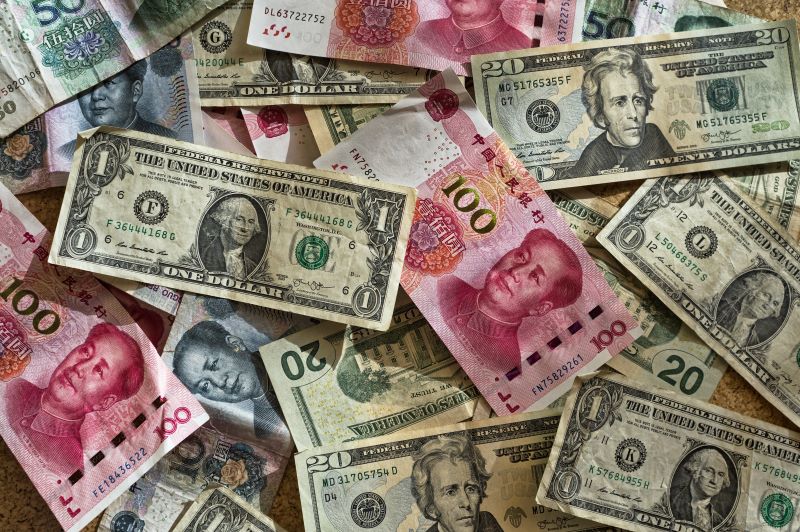For many, travel rhymes with money. And it’s true, it takes money to travel, but not as much as you think! How to establish a budget for a long trip that is realistic and without surprises?
The question always ends up being asked: how much do you spend on travel?
Some people ask for a daily budget, others ask for a monthly range, others ask for a budget per item, like “how much does accommodation cost you on average? Ouch. Difficult question. Asking what budget you should have for the big trip (the famous round-the-world budget) is a bit like trying to calculate the restaurant budget of Gérard Depardieu and Keira Knightley together.
Don’t panic, here are some elements to get an idea!
A travel budget should take into account everything you’ll need before the big departure
There are costs that you already incur before you leave: the travel “material”
The purchase of luggage such as a backpack or suitcase, accessories such as a sleeping bag, a torch, technical clothing or good shoes for all floors and climates.
If you still have no idea what you’re going to need when you travel, here’s an almost complete list of what you shouldn’t miss in your backpack or suitcase.
Then there are the vaccines that is often forgotten in the travel budget
For or against vaccines, the traveller does not always have a choice. In some African countries, you have to show your up-to-date vaccination booklet at the airport, on boarding and on arrival. These vaccines are not always reimbursed and can be expensive if you opt for the full course: Japanese encephalitis, meningitis, diphtheria-tetanus-polio (the famous DTP), hepatitis B, BCG (measles-mumps-rubella), pertussis, etc.
It is advisable to check with a doctor beforehand and plan to do so in advance. The yellow fever vaccine must be administered at least 10 days before departure. In addition, depending on where you live, some vaccinations can only be given in dedicated centres, not by the family doctor, sometimes far from home.
You should think about visas, they are not all free and the bill’s going to be a big one!
Some visas, such as for China, can exceed 100€. It is not useful to apply for all of them in advance but you must have the necessary budget in reserve.
Moreover, in some countries there are, in addition to the visa, entry and/or exit taxes. You sould take the time to make a list of the countries you wish to visit, with the estimated price for each visa, as this will help you to see more clearly.
You have thought about everything you are going to take with you, well done! Now, what will be your expenses during this long trip?
From one country to another
The cheapest way to cross borders between countries is still, in the vast majority of cases, overland routes by bus, train, taxi or even on foot.
Transport by bus, train, taxi or plane must be budgeted realistically and it is not always possible to avoid flying. To go from Lebanon to Jordan, you have to pass through Syria, which, at the beginning of 2018, did not issue visas, even transit visas, to foreigners. The border with Israel-Palestine being closed, no ferry or boat available, there is only the plane left!
In the case of South-East Asia or America, crossing borders by land does not pose a major problem, but it is better to look into the matter to have the necessary funds in case.
Daily journeys
You always need to use a means of transport when travelling. Taxi, bus, tuk-tuk, scooter, car or bike hire, the choices are many. It is therefore difficult to make a precise budget. It is better to allocate a fixed amount per month. Over time, chances are you’ll come up with a fairly fair average. To make a realistic estimate, try to find out the cost of transportation on average. Travel forums, guides or friends who already know the country will be able to give you valuable information. Of course, this is not a very precise estimate, it is impossible, but only to have a global idea of this item of expenditure.
When travelling, it is impossible to foresee everything, a bit flexibility is required!
In travel as in life, there are surprises, imponderables, fails and succes, deviations and shortcuts. It is highly recommended to have somewhere a back-up sum “in case of”. If you have to return to your country in an emergency, if you need to buy something (broken camera, drowned smartphone, torn bag…), if you are robbed, go crazy with shopping, if you decide for a surprise excursion, if, if… Having 1000€ set aside is good to keep your mind free and enjoy your trip.
Round-the-world travel insurance: a contribution that weighs heavily in the traveller’s budget
The specific “long trip” or “round-the-world” insurances are between 60 and 150€ per month. For a whole year, that’s a big sum. Don’t forget to count it as an expense.
Bank charges for credit card payments and withdrawals
This sometimes seems insignificant, but even if the commission seems acceptable, added together, the “bank charges” item can reach substantial sums, especially if you don’t have a specific frequent traveller card. Some travellers charge more than €400 in withdrawal fees in one year. It’s therefore a choice to be made beforehand, because although credit cards that include “no charge abroad” are more expensive, they can quickliy show profits on eliminating cost. In this item of expenditure, you need to estimate the withdrawal costs and don’t forget the monthly credit card and account fee.
A bed to sleep in, a roof over your head: accommodation is one of the heaviest expenses in a “round-the-world” travel budget
You can eat less or eat cheaper, but it is impossible to get around the accommodation. This also applies to campers, there always comes a time when the adventurer needs a refuge (weather conditions, shower, camping forbidden…).
From here on, it is the traveller’s choice that will determine the budget to be committed. Some people want comfort and security, while others will be very happy in a 4 penny hostel with a simple bed and a straw mattress. So from 3/5€ to 70/90€ per night, the margin is big. However, you should know that not all comfortable hotels are overpriced. Don’t rush to booking.com to book everything in advance, it’s once you’re there that you’ll often find the best places and much cheaper than on the internet.
Of course for those with a limited travel budget, the dormitory is the ideal solution. There are clean and comfortable beds at 15€ per night, including breakfast, super close from Istanbul’s Blue Mosque or in the centre of Krakov. More and more good hotels are converting some of their rooms into dormitories as they understand the growing demand from tourists.
To establish this sleeping budget, do some quick research on booking websites (booking.com, hostelworld.com, hotels.com, airbnb, etc…) to get an idea of the prices practiced in the country. Do an average and multiply. You will have a fairly accurate idea of what to expect.
Controlling your expenses is good, calculating your budget as accurately as possible: hello anxiety!
There were two of them and they had planned everything down to the penny: down to the number of cigarettes they smoked every day. 10€ per day for food (“in Asia, it’s cheap”), the most economical guesthouses, each expense negotiated 20 times and rather walk 4 km under the dodger than take a taxi at 1€.
Every day, they walked 2 km to get the cheapest coffee from the market, kebabs, fruit, soups, everything had to fit into this crazy travel budget.
Morality, he was constantly checking everything, worrying about every expense. Not spending money was a real stalker that sometimes turned into harassment: “You’ve eaten 3 skewers today! ». As for her, her daily obsession was eating. She was hungry all the time!
All this is true.
Ask yourself the question: are you really so far from home, have you saved so much to live this trip like this?
The food budget for long-distance trips
This is the hardest calculation to make! Chic restaurant or food truck, it’s up to the traveller to decide. Street food is very cheap just about everywhere in the world except New Zealand, Australia, Northern countries and Western Europe where prices are high. But it won’t be more expensive than in Paris. Be careful not to calculate at the lowest possible price, eating constantly at the economy ends up being frustrating. You are also there to enjoy what the country has to offer in terms of cuisine, it would be a shame to miss out. Also, spending your time looking for the cheapest dive shop in the area, in the long run, is exhausting.
Excursions and sightseeing: an expense that weighs on the travel budget
Yes… for that too you have to pay. Machu Picchu is 72€ for an adult, Angkor 37€ for a single day, let’s not forget the must-see museums, the paid treks, the guides who are sometimes obligatory, the entrance fees to the nature reserves, etc.
As with visas, it is possible to find out about prices on the internet in order to complete the list of expenses to be anticipated.
There are many ways to travel without breaking the bank: volunteering, camping, hitchhiking, couchsurfing…
If you plan to work while travelling on a working holiday visa, you will certainly be able to manage your finances well. Please note that the Working Holiday Visa is also subject to a fee, so don’t forget it in the bill!
You’ll find a lot of advices to travel for a low budget in the article: long journey requires also money: what are the options?
Between recklessness and a travel budget to the penny, you have to find the right balance!
It is not every day that you will visit monuments, deserts, museums or reserves. Nor is it every day that you have to eat noodles. Some weeks are very economical and some days are more expensive than others. There are countries where there is a lot to visit for a fee and others where the best things to see are free. I warned you, travel is adventure!
In any case, this travel budget should be given a certain flexibility. You can’t just drop to the nearest 50€. And if you exceed it in one month, you’ll make up for it the following month!
This budget can vary a lot depending on who you meet along the way: there are encountering that allow you to share costs, good advice from other travellers that will help you keep costs down. Once in the country, you’re sure to find great deals that aren’t on the internet.
Does the travel budget make you feel like a dream’s guillotine?
If the sum of the expenses seems astronomical to you, instead of try to save any penny at every expenditure item, plan to travel 2 or 3 months less. You’ll then be able to fully enjoy your trip without worrying as soon as you need to untie your purse. You’re a long way from home, so you might as well enjoy this time with happiness, not anxiety. This may come as a pleasant surprise in the end: you will have spent much less than you had planned and will be able to enjoy an extension.
Need more travel tips? This way, it's free!

